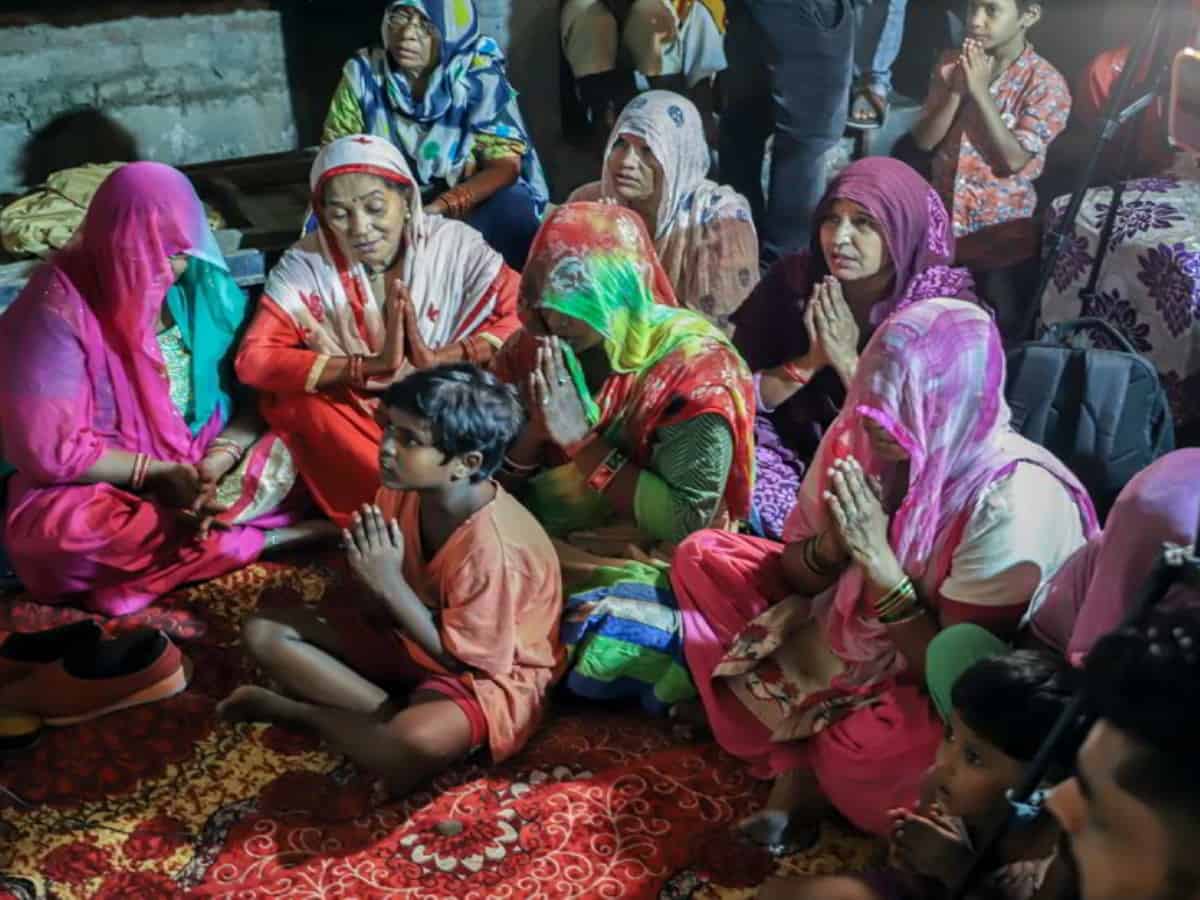New Delhi: After rape and murder of a number of Dalit girls in Hathras, Balrampur and elsewhere in quick succession in Uttar Pradesh (UP), 236 people belonging to the Valmiki community have bid goodbye to Hinduism and embraced Buddhism in protest against the rising atrocities against Dalits under the Yogi Adityanath government.
On Wednesday, they adopted Buddhism at a ceremony in Ghaziabad’s Karhera village in the presence of Rajratna Ambedkar, president of the Budhist Society of India and great- grandnephew of the late Dr. B R Ambedkar Dalit leader and Father of the Indian Constitution.
The date of conversion—14 October–was chosen for its historical significance. It was on 14 October, 1956, that a mass conversion to Buddhism from Hinduism was organised under the leadership of Dr. Ambdekar.
“The data on crimes against Dalits are certainly alarming. Since 2014, crimes and atrocities have increased. After the violence and rape cases against Dalit women in Hathras and Balrampur, Dalits have started to feel more insecure than ever. The demand for conversion to Buddhism has increased manifold across the country, especially in UP. People belonging to the Dalit community and other scheduled castes are opting for leaving Hinduism and embracing Buddhism as an act of liberation and to come out of the cyclic nature of fear and oppression,” Rajratna Ambedkar was quoted by news website mediaindia.eu, as saying.
“The police and authorities are part of the problem in the state. There is upper-caste supremacy at all levels and unfortunately, they are the ones who turn a blind eye to the violence against the lower castes and, sometimes, like in Hathras incident, become oppressors instead,” he added.
The brutal gang-rape and murder of a Dalit girl in Hathras have triggered massive protests in different parts of the country but many such incidents of brutality continued to happen in the BJP-ruled state. The mishandling of such cases by the government also has come under severe criticism from opposition parties and activists.
Rajratna said that a family of the Balrampur rape victim had also converted to Buddhism but the family of the Hathras victim feared government backlash if they converted as they were under government’s surveillance.
Talking about whether the conversion to Buddhism would stop the persecution, he said: “Even though the atrocities against Dalits won’t immediately stop after conversion, the act itself is empowering. In absence of any strong political representation from Dalits, the conversion is a challenge to the core of the oppressor’s supremacy. The mass conversion of 236 Dalits in UP is an act of revolution against the caste supremacy and suppression that is being forced upon them by the society”.
Narrating their plight of lower castes, Sashikant Jadhav, a person belonging to the Valmiki Dalit community said: “No matter how much we study, work or rebel, the upper castes look down upon us and treat us as inferior humans. We are made to feel that we are not an equal citizen of society or the country. Be it the recent Hathras rape case or other instances of violence against Dalits, we continue to suffer every day and at every place”.

